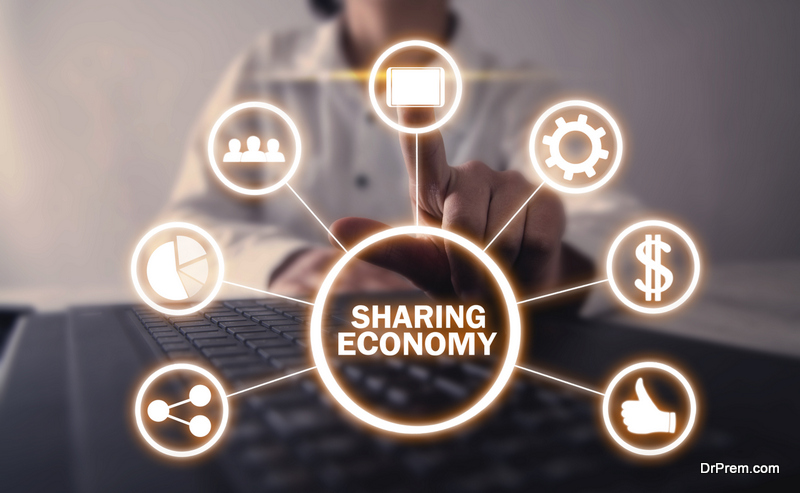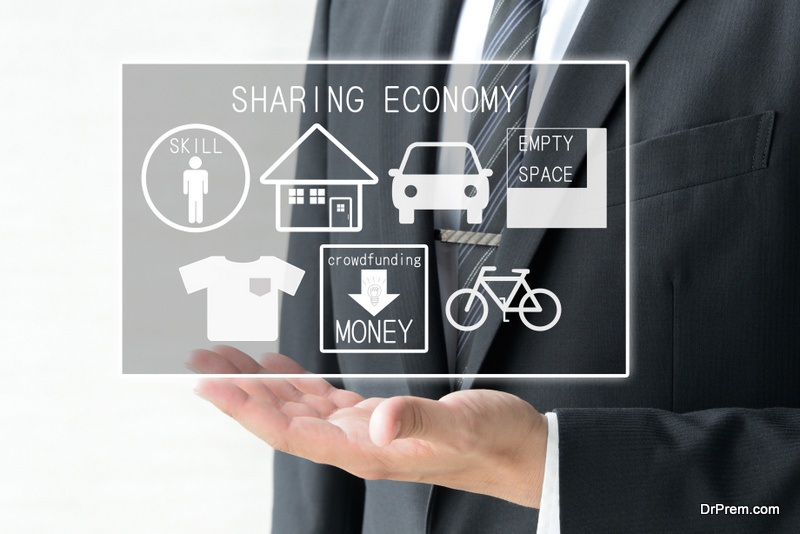You can boost your bottom line and make a positive impact on society by participating in the sharing economy.
The relatively new sharing economy is affecting millions of people around the world. It’s not only transforming lives – it’s saving them.
The sharing economy is creating economic, environmental and social value as it grows and matures.Around the world, everyday people are earning a living – driving transformation and living on the cutting-edge of change, all thanks to the sharing economy.
The following excerpt highlights four environmental benefits of the sharing economy.
1. The Collaborative Consumption Model
In the 70s, physicians diagnosed over 6% of children between the ages of 12 and 19 with obesity. Thiswas and still is a problem. Obese children face added risks, such as chronic health issues, bullying and low self-esteem.
Furthermore, the number of obese children in the United States is on the rise. Today, for instance, physicians diagnose more than 20% of kids between the ages of 12 to 19 with obesity, according to the Centers for Disease Control and Prevention (CDC).
One person who’s leveraging the sharing economy in the fight against obesity is startup entrepreneur Rachel Botsman.Before launching her startup, Botsman wanted to do something that would inspire the masses. She desired to build on the work she performed for the Clinton Global Health initiative that worked toward mitigating childhood obesity.
The entrepreneur was quite successful in our work for the Clinton initiative. In her global travels, see also learned about collaborative consumption. In her new venture, Botsman wanted to leverage the ideas that worked for the Clinton initiative for her own enterprise.
Companies such as AirB&B, eBay and Zipcar leverage collaborative consumption. However, their services encompass the sharing of physical goods. Botsman, on the other hand, believed that she could apply the collaborative consumption model to services. She expands on this idea via an informative the about collaborative consumption and societal health.
2. People Are Buying Fewer Cars
 Fewer people around the world are buying automobiles. At the same time, they’re becoming increasingly concerned about the environment.
Fewer people around the world are buying automobiles. At the same time, they’re becoming increasingly concerned about the environment.
More than 75% of workers commute to work alone, according to the U.S. Census Bureau. However, 9 million more people rode New York railways and 14 million more people rode subways in 2015.
Clearly, there is an emerging trend in transportation. Furthermore, 13% of millennials live in urban areas, while only 7% of baby boomers do the same. This is a significant portion of the population. As more people gravitate towards urban areas for various reasons, they’ll use public transportation as a primary means of commuting.
3. Reduced Transaction Costs
 The sharing economy plays a vital role in reducing transaction costs, and the carbon footprint, for both customers and companies. Some sharing economy companies build entire business models around serving as middlemen.
The sharing economy plays a vital role in reducing transaction costs, and the carbon footprint, for both customers and companies. Some sharing economy companies build entire business models around serving as middlemen.
Today, many peer-to-peer services cater to the needs of consumers.However, the sharing economy is still in an experimental stage. Resultantly, many sharing economy innovators struggle to develop sustainable operating methods.
In some ways, these companies make better use of limited resources. However, it will take time before researchers can figure out how to measure the carbon footprint of relatively new sharing economy enterprises.
4. Workplace Wellness
 According to the CDC, physicians diagnosed nearly 2 million children with depression. Adults also struggle with this debilitating condition. For instance, research shows that physicians diagnose 20% of college students with anxiety or depression.
According to the CDC, physicians diagnosed nearly 2 million children with depression. Adults also struggle with this debilitating condition. For instance, research shows that physicians diagnose 20% of college students with anxiety or depression.
The struggle that college students face is real – and they’re persistent. Accordingly, it’s essential that educators and students alike understand how anxiety and depression can slow student progress.
The sharing economy is redefining commerce.Now, consumers – not businesses – determine the nature of the customer-brand relationship.
Also, it’s redistributing resources around the world in areas such as co-working, professional skills and finance.
The collaborative lifestyle is here to stay. People can now buy products and services sans the responsibilities of ownership. Technology has created a new commercial environment that was unthinkable just a few short years ago.
The sharing economy is reducing the impact that businesses have on the environment. It’s also promoting economic efficiency, although researchers are still struggling to fully assess the benefits of the sharing economy in hard numbers.
Some sharing economy thought leaders believe there is a need for government intervention to promote standardization among peer-to-peer businesses. In some instances, this is already happening, for example, across the ridesharing vertical.
Eventually, sharing economy advocates believe that peer-to-peer businesses will promote disruptive positive change and a better environment for everyone. For now, the jury’s still out. Nevertheless, many pioneering entrepreneurs are holding out hope that the sharing economy is the way to promote a sustainable future.
Article Submitted By Community Writer



